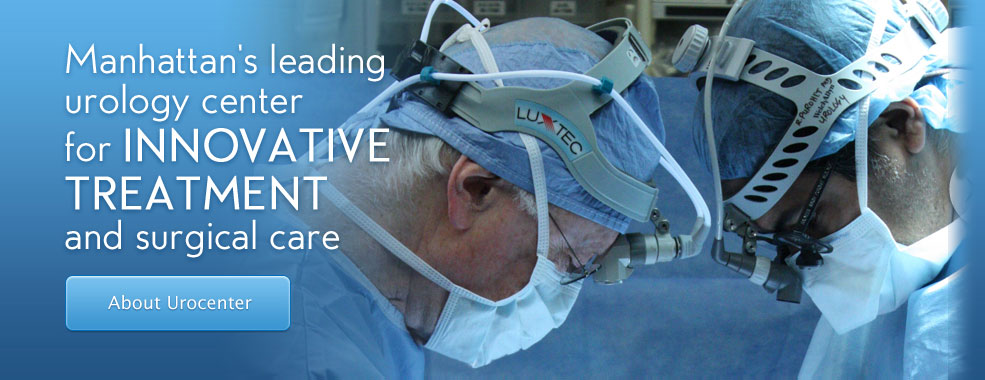Jerry G. Blaivas, MD
Stress urinary incontinence in women is common and increases with advancing age. It is characterized by leakage of urine during coughing, sneezing, laughing, and all kinds of physical activity like running, jumping, lifting, etc. Most of the time stress incontinence is due to a weak sphincter (sphincteric incontinence), but sometimes the physical activity kind of jostles the bladder and causes it to contract by itself. The result is that the patient actually urinates without control. This is called stress induced detrusor overactivity also known as stress hyperreflexia. It is very important to make the distinction between sphincteric incontinence and stress hyperreflexia because the treatments are very different. Sphincteric incontinence is best treated with surgery; stress hyperreflexia is usually treated non-surgically.
The most common surgical treatments for sphincteric incontinence are slings. The efficacy of slings has been well documented by many research studies. The success rate is very high – over 85% of patients are pleased with the results (1,2).
There are two main kinds of slings – synthetic mesh slings, made of knitted plastic like threads and autologous fascial slings made of your own natural tissue called fascia, which is the strong white tissue that lines the muscles in your body. The success rate is nearly identical between the two types of slings, but complications can be much more troublesome and severe after mesh slings.
Pros and cons:
Mesh slings are much easier for the surgeon to perform. Surgery usually takes well under one hour and the patient is usually able to leave the hospital the same day or the next morning without a catheter. There is only a small incision, the recovery is much faster and patients can get back to normal activities sooner. Because of these apparent advantages, about 90% of slings performed in the United States are done with mesh. But there is a catch – nearly 10% of patients undergoing mesh slings sustain serious, life style altering complications and in another 5% the surgery was unsuccessful so the patient is still incontinent (3, 4).
Autologous fascial slings require a much higher degree of surgical training. Few surgeons are trained to do them well. The surgery takes about two hours and there is a 3 to 4 inch incision made in the lower abdomen. Most patients need to remain in the hospital for a day or two. The overall complication rate is about the same as with mesh slings, but serious, lifestyle altering complications are exceedingly rare.
We believe that the complication rate of synthetic mesh slings is under-reported in the peer-review literature and underappreciated by most surgeons and that is why they have achieved such popularity. In 2014, we conducted a systematic review of the medical literature to assess serious complications caused by mesh slings. These complications included those that necessitated more surgery such as a urinary blockage (urethral obstruction), erosion of the mesh into the vagina, bladder, and urethra, urinary fistulas, and blood vessel and bowel injury and serious infections. Other serious complications included those that were unresponsive to treatment and were lifestyle altering such as chronic pain, loss of bladder control (de novo overactive bladder). These serious complications were seen in about 10% of patients and in another 5% to 10% the original incontinence was unchanged or even worse.
The overall quality of the studies included in the review was judged to be poor with respect to complications. A particular shortcoming was the fact that the vast majority of the studies only followed the patient’s for six months to two years after the mesh sling operation, yet these serious complications occurred as long as long as 10 or more years after the original mesh sling surgery.
Concluding remarks -These complications are not inconsequential and they could happen to you! If you are considering sling surgery, be sure to do your homework. It is not enough for your doctor to tell patients that sling surgery is safe and effective. A 90% chance of not developing a lifelong problem with pain might seem pretty good, but when you realize that this is one out of 10 patients, the odds might not seem so great after all – especially if it happens to you.
Do the benefits of mesh sling surgery outweigh the risks? Does a fast outpatient procedure with a tiny incision and a quick recovery outweigh a 10% bad outcome? That’s for you to decide, but you need to be armed with accurate information. So ask your surgeon about her training. How experienced she is with both mesh slings and autologous slings? How long has she been doing these kinds of surgeries? Be sure to seek opinions from surgeons who are experienced with both kinds of slings. What does she think about what you have read here?
Then decide for yourself!
1. Dmochowski RR, Blaivas JM, Gormley EA, Juma S, Karram MM, Lightner DJ, Luber KM, Rovner ES, Staskin DR, Winters JC, Appell RA. (2010). Female Stress Urinary Incontinence Update Panel of the American Urological Association Education and Research, Inc, Whetter LE. Update of AUA guideline on the surgical management of female stress urinary incontinence. J Urol. May; 183(5):1906-14. doi: 10.1016/j.juro.2010.02.2369. Epub 2010 Mar 29.
2. Blaivas, J. G., & Chaikin, D. C. (2011). Pubovaginal fascial sling for the treatment of all types of stress urinary incontinence: surgical technique and long-term outcome. Urol Clin North Am, 38(1), 7-15, v. doi: 10.1016/j.ucl.2010.12.002.
3. Blaivas, J. G., Purohit, R., Benedon, M., Mekel , Stern, Billah, Olugbade, Bendavid , Iakovlev. Safety considerations for synthetic sling surgery. (2015). Nat Rev Urol. 2015 Sep;12(9):481-509. doi: 10.1038/nrurol.2015.183. Epub 2015 Aug 18.
4. Dunn, G.E. et al. Changed women: the long-term impact of vaginal mesh complications. Female Pelvic Med Reconstr Surg 20, 131-6 (2014).








 Urologic Problems in Men
Urologic Problems in Men Urologic Problems in Women
Urologic Problems in Women